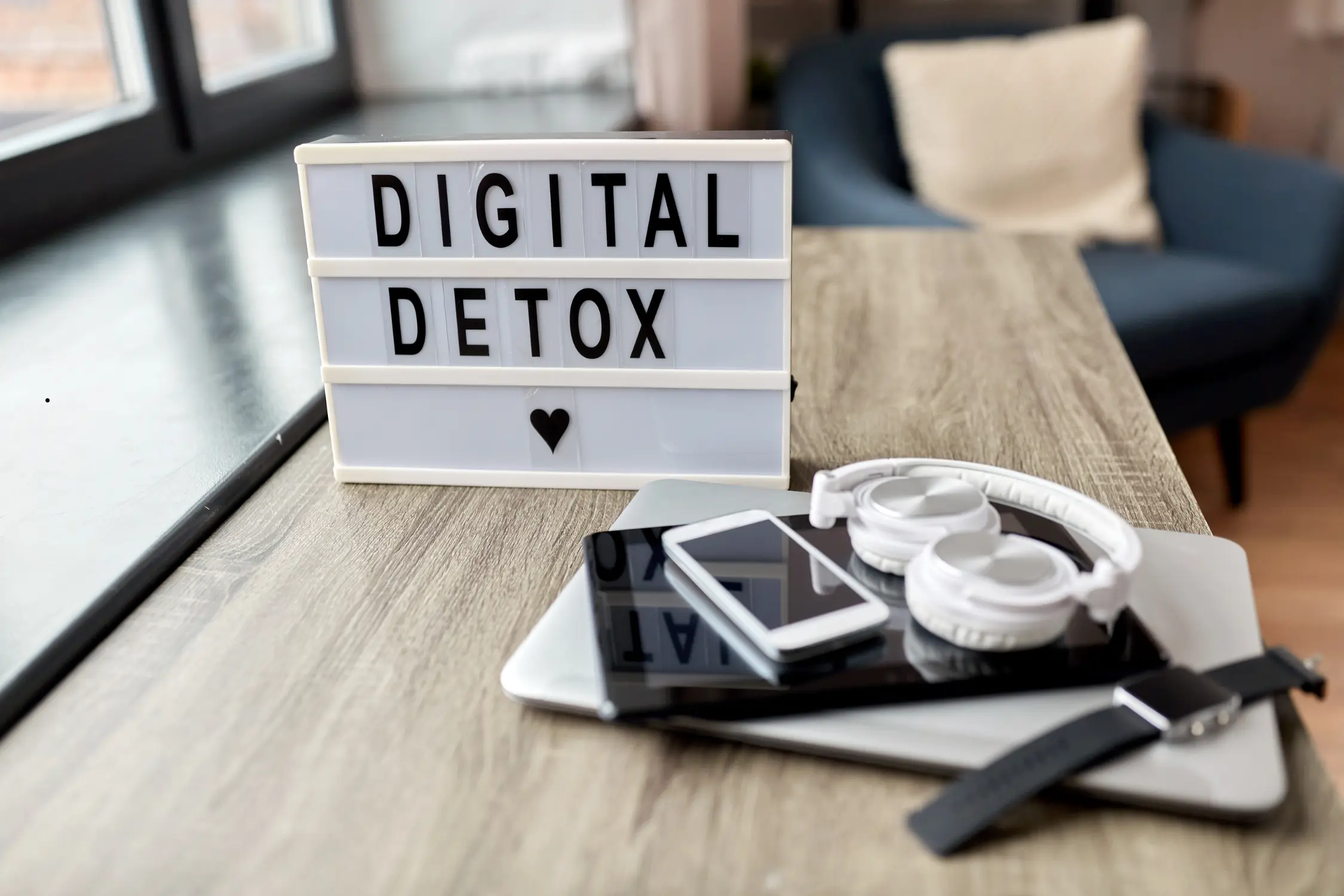The Digital Detox: Can Unplugging Help Heal Addiction?

Smartphones, tablets, and endless notifications have become part of everyday life. For many, this constant connection leads to stress, anxiety, and unhealthy behaviors. For those in addiction recovery, digital overload can create additional hurdles — from poor sleep to emotional triggers.
This has sparked interest in the idea of a digital detox: intentionally unplugging from screens to reset the mind and body. But can disconnecting from technology actually help heal addiction? At Discovery Point Retreat, we believe digital detoxing can play a valuable role in recovery — when combined with evidence-based treatment.
What Is a Digital Detox?
A digital detox is a period of time when someone intentionally avoids digital devices such as smartphones, computers, and social media platforms. The goal isn’t just fewer notifications — it’s about reclaiming focus, reducing stress, and reestablishing healthier habits.
In recovery, a digital detox can help:
- Remove online triggers tied to substance use.
- Break the cycle of dopamine-driven scrolling.
- Create space for mindfulness and self-reflection.
Why Digital Detox Is Popular in Recovery
The rise of digital detox recovery is tied to:
- Screen time stress: Studies show heavy device use increases anxiety and stress levels.
- Sleep disruption: Blue light and late-night scrolling impact rest, making healing harder.
- Social comparison: Social media often fuels loneliness and self-doubt.
- Mindfulness trends: People are seeking balance, meditation, and tech-free living.
For those in recovery, unplugging can feel like taking back control.
The Benefits of a Digital Detox
Stepping back from technology can open space for genuine presence and emotional clarity — two things often lost in the noise of constant connectivity. For individuals in recovery, this pause from screens offers a rare opportunity to rebuild balance, rediscover focus, and nurture the deeper parts of healing that thrive in stillness.
Restoring Brain Chemistry: Excessive screen use triggers dopamine surges, similar to addictive substances. A detox allows the brain to recalibrate, making recovery stronger.
Reducing Anxiety and Stress: Limiting screen exposure lowers mental overload and helps people in recovery feel calmer and more grounded.
Strengthening Relationships: Unplugging allows for deeper, face-to-face connections — a crucial part of long-term recovery.
Improving Sleep: Tech-free evenings can restore natural sleep cycles, boosting physical and mental health.
Supporting Relapse Prevention: By removing online triggers — from alcohol ads to glamorized substance use — people reduce the risk of relapse.
The Challenges of Unplugging
Digital detoxing isn’t always easy. Challenges include:
- Withdrawal feelings: Anxiety, boredom, or FOMO may appear at first.
- Practical barriers: Work and school often require screens.
- Substitution risk: Without guidance, someone may swap one addiction for another (gaming, binge streaming).
- Short-term fixes: A weekend offline can help, but true recovery requires deeper healing.
This is why a digital detox works best when integrated into a structured recovery plan.
Digital Detox vs. Professional Treatment
It’s important to recognize that:
- Digital detox = lifestyle tool
- Addiction treatment = evidence-based care
Unplugging can support sobriety, but it is not a substitute for professional treatment programs that address the root causes of addiction.
How Discovery Point Retreat Incorporates Digital Balance
At Discovery Point Retreat, we take a holistic approach to addiction recovery. That means we don’t just focus on substances — we look at lifestyle factors like technology use that impact mental health.
- Clients learn healthy boundaries with technology.
- We encourage screen-free activities like journaling, exercise, and time in nature.
- Our team provides tools for creating balance long after treatment ends.
- Most importantly, we combine these strategies with evidence-based treatment that addresses the core of addiction.
Explore our recovery programs →
Tips for a Successful Digital Detox in Recovery
- Start small: Set aside tech-free hours each day.
- Create screen-free zones at home.
- Replace screen time with healthier habits: walking, art, or therapy.
- Use accountability partners — tell a sponsor or loved one about your detox goals.
Remember: the goal isn’t avoiding technology forever — it’s creating a balanced relationship with it. A digital detox can’t cure addiction on its own, but it can be a powerful ally in recovery. By unplugging from screens, people gain mental clarity, reduce stress, and reconnect with themselves and others.
At Discovery Point Retreat, we help clients integrate healthy lifestyle practices like digital detox while providing the evidence-based care necessary for long-term sobriety.
👉 Contact us today to learn how we can help you or a loved one heal — both online and offline.

